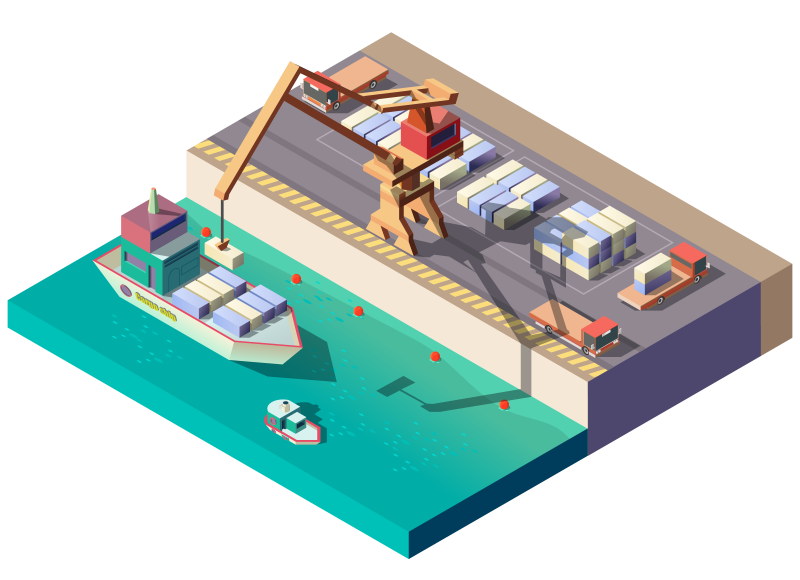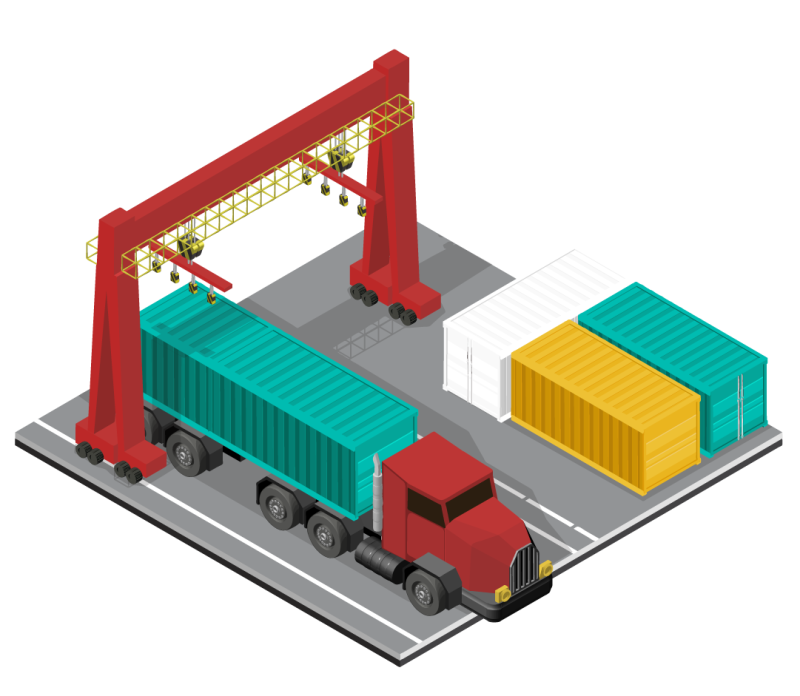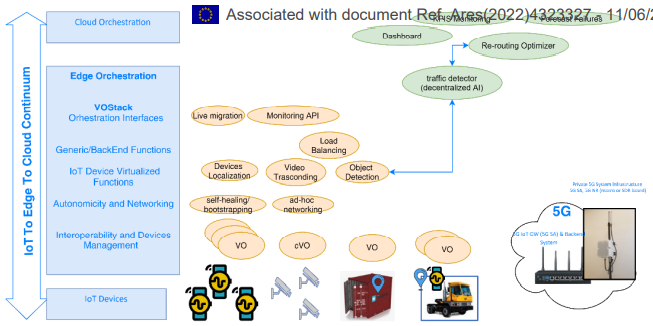The Port of Koper handles over a million TEUs annually. Behind this bustling activity lies a complex logistics challenge affecting efficiency, costs, and environmental impact. Everyday, cargo containers must be efficiently routed from terminal yards to container freight stations within the port area, where cargo is loaded and unloaded. Traditional logistics operations face critical challenges: suboptimal routing leading to delays, higher CO2 emissions from inefficient vehicle utilization, limited real-time visibility, and reactive operational decisions. Current best practices rely on manual planning and static schedules, lacking real-time intelligence needed for optimal decision-making. The NEPHELE solution targets measurable improvements:
- Up to 5% faster delivery times.
- Up to 5% improvement in vehicle utilization.
- A maximum of two delivery errors per day.
- Up to 5% reduction in CO2 emissions.
- Reduced operational costs and improved workforce safety.
At the heart of our solution is a comprehensive digital twin, a real-time virtual replica of the port ecosystem. Our digital twin operates across five intelligent layers:
- Data collection from IoT sensors and cameras.
- AI-powered processing using cloud, edge, and far-edge computing.
- Interactive visualization providing real-time insights.
- Predictive simulation anticipating congestion.
- Intelligent decision support for automated coordination.
Advanced AI algorithms analyze multiple data streams to optimize container routing, considering safety rules, cargo sensitivity, and real-time traffic conditions. The system is built on cutting-edge technology including a private 5G network, industrial IoT devices, time-sensitive networking, and our Virtual Object Stack. Implementation involves installing industrial IoT devices on port vehicles and strategic locations, deploying 5G connectivity infrastructure, and implementing secure data processing and energy-efficient edge computing capabilities. Our pilot deployment at the Port of Koper has provided valuable real-world insights. Initial results show promising improvements in operational efficiency, with the system successfully handling container routing scenarios while providing enhanced environmental monitoring. The NEPHELE solution has demonstrated significant potential for transforming port logistics operations. The real-time visibility and AI-driven optimization capabilities represent a major step forward in port digitalization, assuring more efficient and sustainable operations. NEPHELE's AI-assisted logistics operations, powered by digital twin technology, represent the future of smart port operations: more efficient, more sustainable, and more intelligent.
Study Case
Optimise the routing of containers from the Container terminal yard or Depo area to different Container Freight Stations (CFS) within the port, where the cargo is stuffed/stripped, and vice-versa.
This is one of the most important operations in the port in terms of reduced routing times, lower CO2 emissions, higher truck/forklift utilization, and service level agreements (e.g., times of delivery, compliance with goods sensitivity, etc.).
Demonstration

Simulation of implementation in Port of Koper (Luka Koper) in Simulation Platform SUMO (Simulation of Urban Mobility) Programmability features:
- Simulation Controller (Traci) Python interface to SUMO
- Forwarding updated truck position information and flow demands to Agent.
- Generation of Time Sensitive Schedules
- TAPRIO (Time-Aware Priority; one open source implementation, part of the synchronous Time Sensitive Networking standards, developed by Intel for the IEEE 802.1Qbv) GCL (Gate Control List) updated
Scenarios

- Trucks transport containers
- VO responsible for truck IoTs at the edge.
- Truck relocation results change of flow demands.
- Change in the flow requirements as Truck relocate.
- New GCL (Gate Control List) has to be computed to satisfy changes along with previous flow requirements.
Goal

The goal is Container routing optimization. The application will propose optimal path/track for routing each container within the port area according to requirements given by freight forwarder and to temporal conditions in the port.
Description
- Data collection application component collects data from sensors and cameras installed/mounted in the field and provides them in suitable format to the other components.
- Object detection is an AI/ML algorithm responsible for detection of free parking lots needed for containers unloading.
- Logistic Scheduling Agent collects data from sensors, object detection algorithm and data from external sources (Port Information System) to provide schedule and optimal routes for containers routing
- Real-time adaptive logistics scheduling Agent
- Backlog API handling freight data from terminal’s ERP
- Traffic delays API receiving real-time traffic data
- Dispatch Decision Making is a final application component which provides Logistic Scheduling Agent’s outcome to the port staff in order to execute container routing.
Technical constraints

- Software components orchestration
- Device Management
- Interfaces to IoT devices/sensors and to data, relevant for the business process (Port Information System)
- Sensor data collection and aggregation
- AI/ML supported computer vision for information extraction (object detection)
- AI/ML supported containers routing optimization algorithm
- Providing feedback to port personnel and freight forwarders
- 5G network coverage
